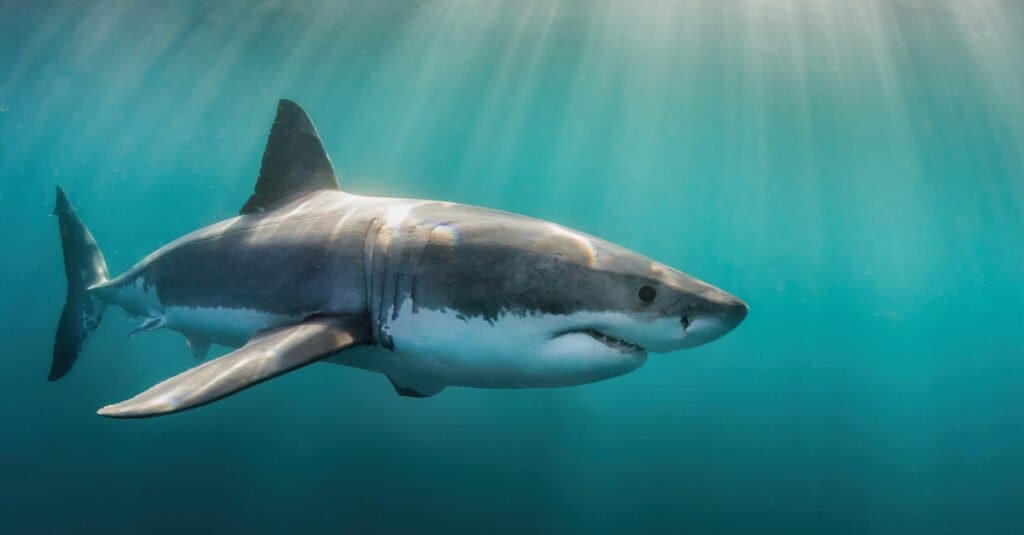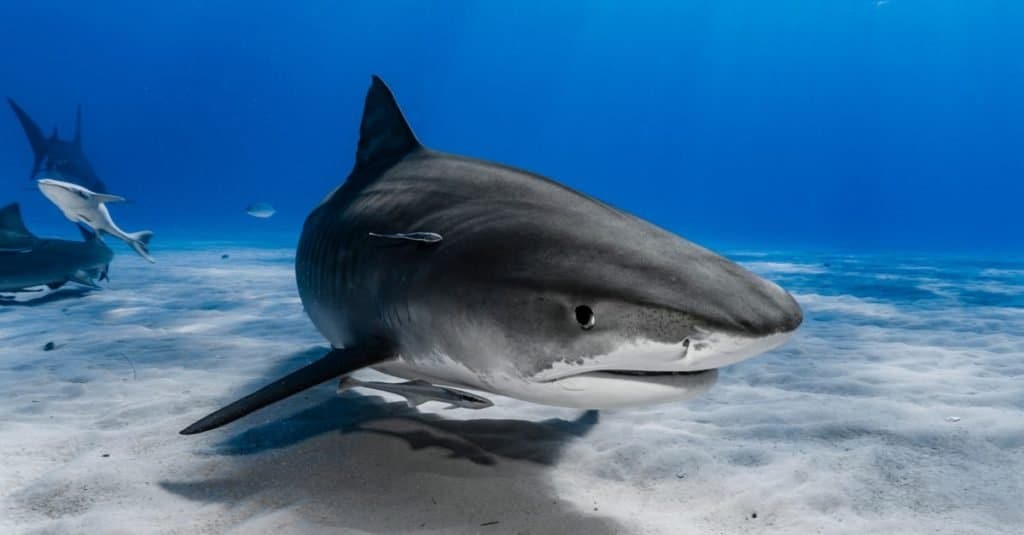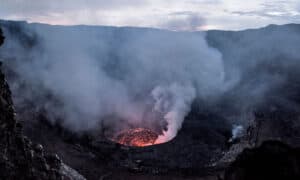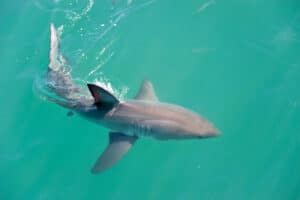For millions of years sharks have been swimming the seas, from the shallows to the deepest depths imaginable. There are more than 500 species of shark alive today. However, despite extensive studies, there is still a lot we don’t know about them. One of the most interesting questions that is asked about sharks is whether they sleep or not, and it’s one that’s often caused a lot of debate. It’s pretty clear that sharks don’t catch forty winks in the traditional sense, involving hours of deep, restful sleep. So, if they do sleep, then just how do sharks sleep? Join us as we discover whether sharks really do sleep and how they do it.
Can Sharks Stop Swimming?
Easily the biggest hurdle to sharks settling down for a nap is a little issue involving breathing. Many sharks are unable to ever stop swimming because they need to be in constant motion to breathe. Swimming keeps water moving over their gills so that they can survive. Basically, if they stop moving they stop getting oxygen from the water and they will die. Sharks that have to swim to breathe are known as “obligate ram ventilators” because of the way that they have to swim fast through the sea with their mouths open to force water over their gills.
However, there is an exception to the rule. Some sharks have spiracles which do the job for them. Spiracles are openings behind each eye. These openings are used to suck water into the buccal space before it is pushed back out through the gills. Spiracles allow sharks to breathe without needing to swim and are essential for bottom-dwelling sharks. This is because bottom-dwelling sharks often lie in wait for their prey before lunging at them. Spiracles are found on most sharks apart from requiem sharks, mackerel sharks (such as the great white) and hammerheads – all of which have to swim constantly. So sharks such as nurse sharks and sand tiger sharks which both have spiracles are able to stop swimming.

Great whites must swim continually so that they can breathe
©Fiona Ayerst/Shutterstock.com
Do Sharks Sleep?
The question of whether sharks sleep or not has long been a topic of debate, especially as it’s quite difficult to define what “sleep” is to a shark. So, do sharks sleep? As we’ve just discussed, sharks fall into two categories – those that can stop swimming and those that can’t (requiem and hammerhead sharks). Considering this, “sleep” is going to be different for these two categories of sharks.
Although those that can’t stop swimming are unlikely to fall into a deep sleep (in case they accidentally stop swimming), they do go seem to go through periods of being active and then less active. This points towards them being able to rest part of their brain while still being conscious enough to swim.
On the other hand, it should be easier for sharks with spiracles to sleep as they can stop swimming. However, it’s not entirely that easy. They can’t just stop swimming to snooze wherever they feel like it because when sharks stop swimming they sink. This is because they lack a swim bladder. Although their large oil-filled livers provide some buoyancy, they aren’t able to just float around. Instead, sharks rely on the movement of their pectoral and caudal (tail) fins to keep them afloat. Therefore, sharks that stop swimming to rest must do so at the bottom of the ocean. However, when they are awake and moving they generally breathe the same way as obligate ram ventilator sharks do – by swimming with their mouths open and pushing the water over their gills by motion.
Sharks that live in the middle or top of the water column rarely have spiracles. This is because the seabed or coral reefs (where they would have to rest) are much deeper than their natural habitat.
How do Sharks Sleep?

Tiger
sharks can rest on the seabed to sleep
©kaschibo/Shutterstock.com
So, we’ve established that sharks do sleep, although it’s more of a restful period than a truly deep sleep. Sharks with spiracles can rest on the sea floor to sleep while their spiracles continue to push water over their gills. This means that they can rest without having to worry about swimming to breathe. However, studies have shown that even when asleep they are still somewhat aware of prey and any potential threats that enter into their vicinity. They even sleep with their eyes open!
However, as we mentioned above sharks like requiem sharks and hammerheads only enter into restful or less active periods to sleep as they have to remain in motion. This was long thought to be “sleep swimming” where they rest only part of their brain at a time. However, studies have shown that the action of swimming could be actually not be down to the brain at all. In fact, they believe that it is actually the spinal cord that causes sharks to swim. This means that those that have to swim to survive might actually indulge in pretty restful sleep while their body continues to swim regardless. This restful swimming is usually done facing into the current so that water enters their mouth with little effort.
Another way that sharks sleep is through a method known as “yo-yo swimming”. This method is used when sharks are swimming long distances. Sharks swim towards the surface and then “glide” back down the water column without much swimming effort needed. This allows them to rest during the descent where they’re not using as much effort. Yo-yo swimming has been observed in great white sharks migrating between Australia and South Africa.
When do Sharks Sleep?
Another question that often comes up when discussing how sharks sleep, is when they actually sleep. Do sharks sleep just when they’re tired? Or is their sleep pattern defined by day and night like ours is? The truth is that sharks sleep is actually dependent on their Circadian Rhythm.
Rather than sleeping during the day and being awake during the night (nocturnal) or the reverse, most (although not all) sharks have no strict preference for day or night. Instead, they sleep when their instincts tell them to. However, as we’ve already learnt that sharks sleep is simply periods of rest compared to active periods, they actually go through many of these periods in a twenty-four hour period. Therefore, it’s actually really difficult to know how often sharks sleep and just how much rest they get when they do.
Up Next…
- Whale Shark: Learn about the biggest shark of them all!
- 5 Animals that Could Defeat a Great White Shark: It’s hard to believe that any animal could defeat one of the earth’s most efficient killers. Discover the animals that could!
- How Deep is the Atlantic Ocean?: Some sharks sleep on the bottom of the ocean floor. Just how deep is the Atlantic Ocean?
The photo featured at the top of this post is © HakBak/Shutterstock.com
Thank you for reading! Have some feedback for us? Contact the AZ Animals editorial team.






